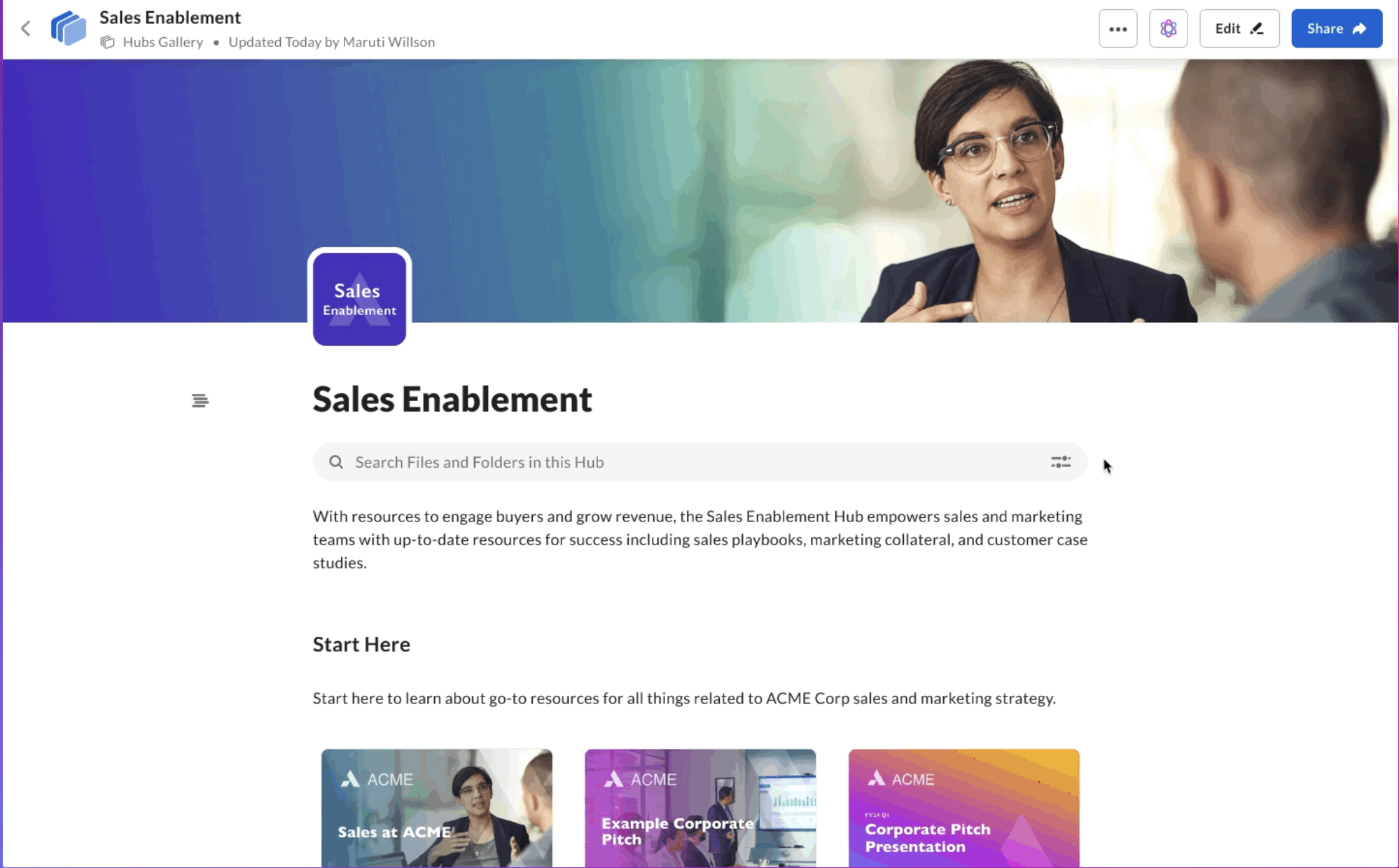Box announces Hubs, a custom portal to share specialized content

For years, companies have been looking for better ways to share content, but the file/folder metaphor has stubbornly stuck. And that worked fine for ad hoc kinds of sharing between individuals or small groups, but for larger teams, it could be hard to understand the content sitting in folders without context. Enter Box Hubs, a new tool for creating a centralized micro site for sharing specialized kinds of content. It was announced today at the BoxWorks customer conference.
Company CEO and co-founder Aaron Levie says that this problem has been something the company has thought about solving for a decade, but it really came to a head during the lockdown when content sharing became imperative. Today, with the advent of generative AI, it makes these kinds of content portals even more useful.
“So Box Hubs is basically the ability to curate content from your Box account, and then publish it out to any audience that you want, but in a custom and curated way within your business and the use cases are effectively endless,” Levie told TechCrunch.
This takes the shape of a specialized portal designed to hold things like HR policies, brand assets or the latest pricing information for a sales team. Each of these scenarios would lose something in translation in files and folders, but their purpose would be clear in a portal like this one:

Image Credits: Box
Where does AI come into play here? The hub format provides a highly curated set of information to search on, something that Levie admits they hadn’t considered until ChatGPT emerged last year.
“One of the biggest problems with AI is that it’s actually very hard if you make an AI query across a large unstructured data set for every topic in your enterprise. The challenge is you’re often going to get either hallucinations, or the wrong answer back from the AI because it just has too many different sources of information where it can answer the question,” he said.
Box realized that applying generative AI to search across a single content repository like a Box Hub would actually result in much more accurate answers and work well with a generative AI search approach. “What we landed on, frankly coincidentally, is that once you’ve curated your data in a [subject-specific content portal], and users ask a question within that context, you actually get much better answers and much higher likelihood of the right type of response.”
The company is providing an tool to build the portals, and Levie says creating them is fairly straightforward. “You basically just add a new hub, give it a header, give it a title, give it an icon, fill it with content, press publish, and you’re done,” he said.
It will be up to customers to make sure the portals are current and that obsolete ones get deleted. Levie says who’s responsible for creating and maintaining the hubs is something customers will have to work out, but he says that it would typically be a department or team lead, or a power user who would take over these responsibilities.
Box Hubs will be free with Enterprise plans and above, but Box Hubs with AI search will be a separate component available only with the Enterprise Plus plan.
It’s important to note that while both products were announced today, they won’t be available in beta until some time next year.


